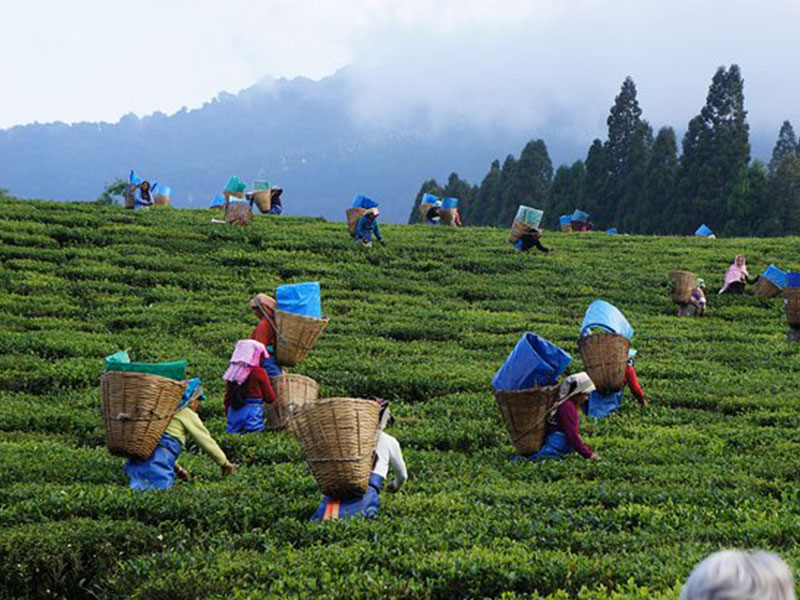Sri Lanka’s lush tea plantations, once synonymous with emerald bounty, are facing a brewing storm. The fragrant leaves that fueled an empire now whisper tales of hardship, echoing the struggles of the very hands that nurture them—the plantation workers. For decades, these vital contributors have toiled under a wage system that prioritizes presence over performance, leaving them trapped in a cycle of low productivity and meager earnings. But a new horizon beckons, offering a glimmer of hope: the possibility of a fairer, more sustainable future through innovative wage models.
The current predicament is stark. The attendance-based minimum wage, while seemingly straightforward, has become a millstone around the industry’s neck. It disincentivizes quality and efficiency, contributing significantly to soaring production costs and a decline in Sri Lanka’s once-unmatched tea quality. This, in turn, fuels a vicious cycle. Low wages and limited earning potential drive workers away, exacerbating labor shortages and further dampening productivity. The consequences are dire—not just for workers struggling to make ends meet but for the entire industry grappling with competitiveness in a globalized market.
Alternative wage models:
However, amidst the challenges, whispers of change take root. The Advocata Institute report proposes a bold departure from the status quo, advocating for alternative wage models that reward results rather than mere attendance. The revenue-share model, for instance, ties worker pay directly to the quantity and quality of tea leaves produced. This incentivizes not just efficiency but also a meticulous dedication to crafting superior grades, potentially restoring Sri Lanka’s standing as a purveyor of premium teas. The outgrower model, with its focus on weight-based remuneration, offers another promising avenue.
Yet, transitioning to these models is not without its hurdles. Implementing a transparent and equitable revenue-sharing system requires careful calculations and robust distribution mechanisms, presenting administrative challenges. Negotiating fair percentages that satisfy both workers and plantation owners can be a delicate dance, demanding open communication and trust-building. Moreover, shifting deeply entrenched wage structures necessitates meticulous planning and stakeholder engagement to ensure a smooth and sustainable transition.
Despite the complexities, the potential rewards are undeniable. Higher wages for plantation workers translate to improved living standards, attracting and retaining skilled labor, and ultimately boosting productivity and profitability for the industry. The smallholder sector, where output-based remuneration thrives, serves as a beacon, showcasing the positive impact of aligning worker incentives with overall goals.
Therefore, a collective effort is paramount. The government, plantation owners, and most importantly, the workers themselves must come together to chart a course towards a fairer future. Pilot projects testing alternative models, coupled with continuous monitoring and evaluation, can pave the way for informed and data-driven decisions.
Increasing wages for Sri Lanka’s plantation workers is not merely an economic imperative but a moral obligation. It is a chance to rewrite a narrative of hardship, replacing it with one of dignity and shared prosperity.








